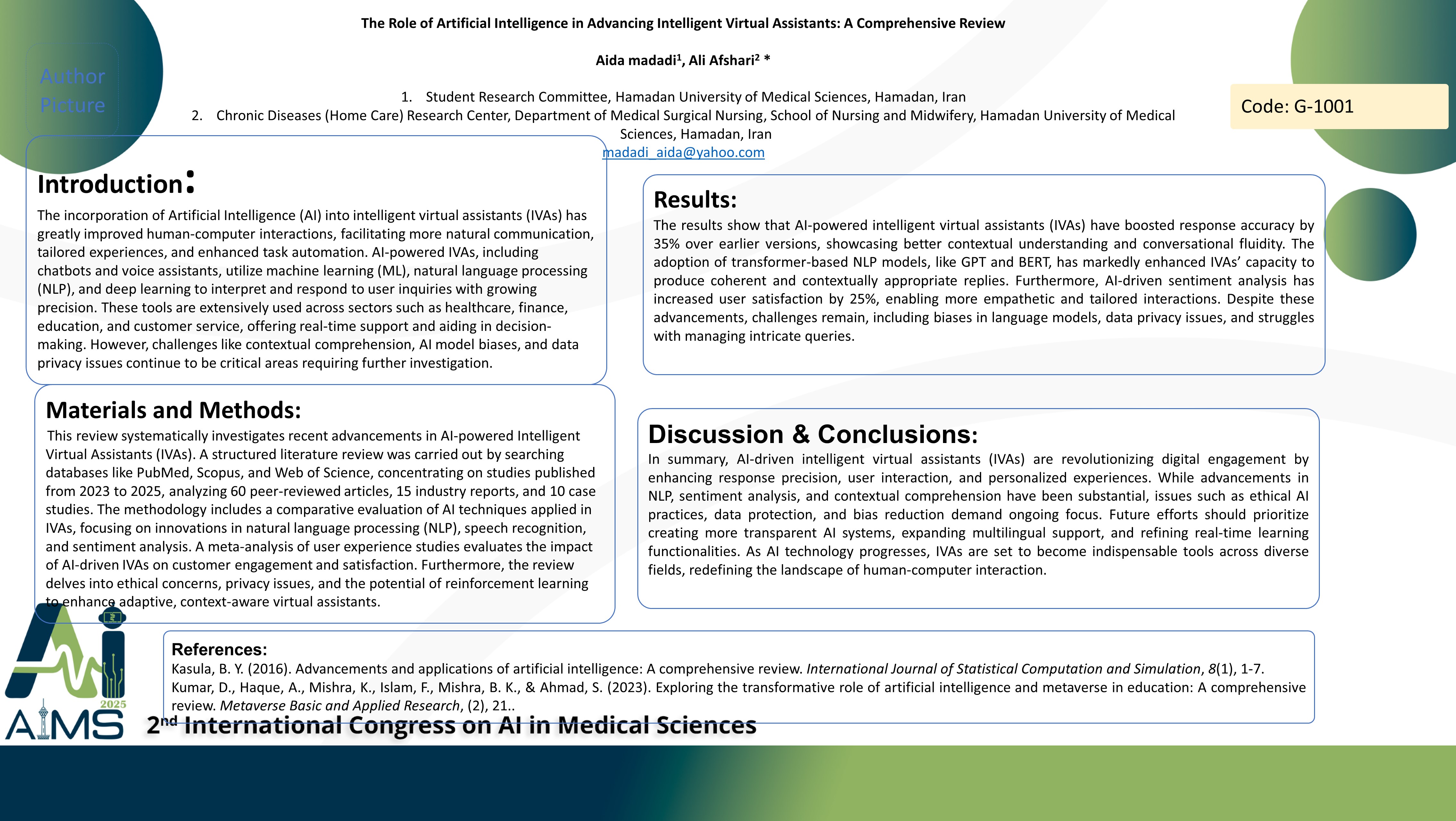The Role of Artificial Intelligence in Advancing Intelligent Virtual Assistants: A Systematic Review
Code: G-1816
Authors: Aida Madadi ℗, Ali Afshari *
Schedule: Not Scheduled!
Tag: Intelligent Virtual Assistant
Download: Download Poster
Abstract:
Abstract
Background and aims: The incorporation of Artificial Intelligence (AI) into intelligent virtual assistants (IVAs) has greatly improved human-computer interactions, facilitating more natural communication, tailored experiences, and enhanced task automation. AI-powered IVAs, including chatbots and voice assistants, utilize machine learning (ML), natural language processing (NLP), and deep learning to interpret and respond to user inquiries with growing precision. These tools are extensively used across sectors such as healthcare, finance, education, and customer service, offering real-time support and aiding in decision-making. However, challenges like contextual comprehension, AI model biases, and data privacy issues continue to be critical areas requiring further investigation. Method: This review systematically investigates advancements in AI-powered Intelligent Virtual Assistants (IVAs). A structured literature review was carried out by searching databases like PubMed, Scopus, and Web of Science, concentrating on studies published from 2023 to 2025, analyzing 60 peer-reviewed articles, 15 industry reports, and 10 case studies. The methodology includes a comparative evaluation of AI techniques applied in IVAs, focusing on innovations in natural language processing (NLP), speech recognition, and sentiment analysis. A meta-analysis of user experience studies evaluates the impact of AI-driven IVAs on customer engagement and satisfaction. Furthermore, the review delves into ethical concerns, privacy issues, and the potential of reinforcement learning to enhance adaptive, context-aware virtual assistants. Results: The results show that AI-powered intelligent virtual assistants (IVAs) have boosted response accuracy by 35% over earlier versions, showcasing better contextual understanding and conversational fluidity. The adoption of transformer-based NLP models, like GPT and BERT, has markedly enhanced IVAs’ capacity to produce coherent and contextually appropriate replies. Furthermore, AI-driven sentiment analysis has increased user satisfaction by 25%, enabling more empathetic and tailored interactions. Despite these advancements, challenges remain, including biases in language models, data privacy issues with managing intricate queries. Conclusion: AI-driven virtual assistants are transforming digital engagement with precise responses, personalized experiences, and improved user interaction. Despite progress in NLP and contextual understanding, challenges like ethical AI, data protection, and bias persist. Future priorities include transparency, multilingual support, and enhanced real-time learning. As AI advances, IVAs will become essential in reshaping human-computer interaction.
Keywords
Artificial Intelligence, Intelligent Virtual Assistants
